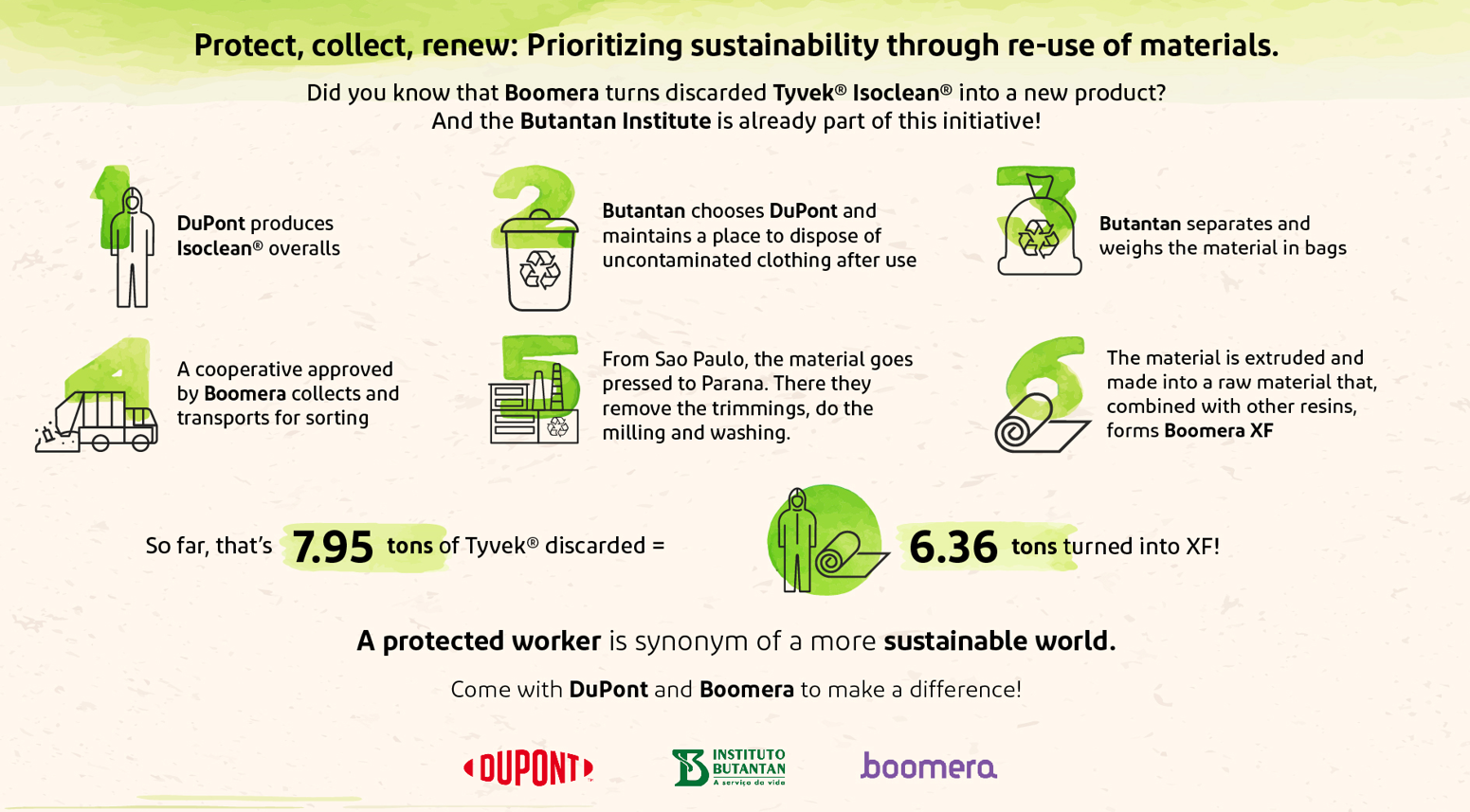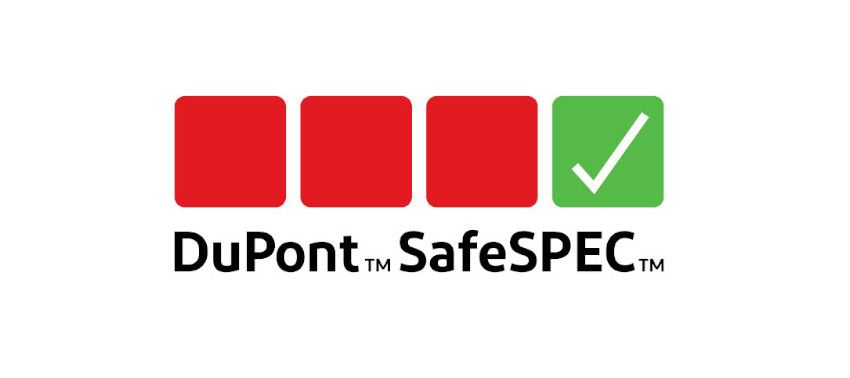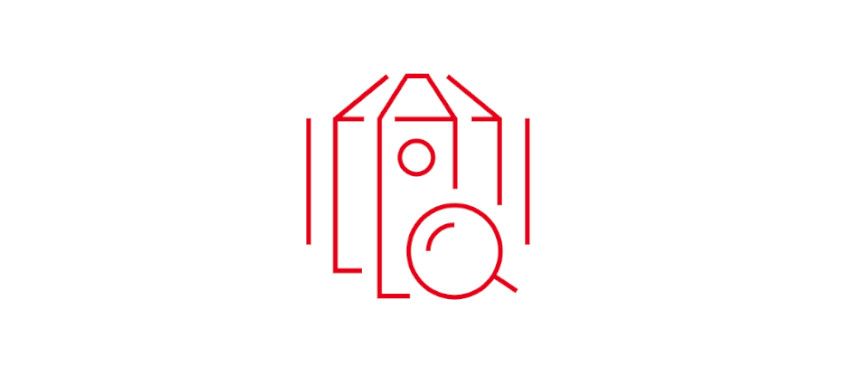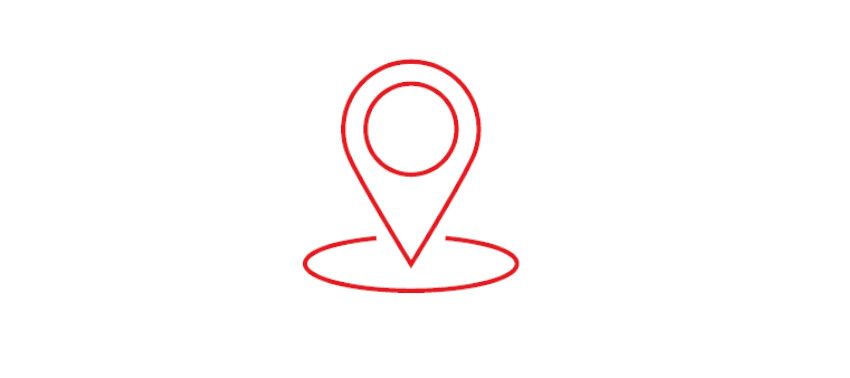Instituto Butantan is using DuPont™ Tyvek® PPE in their vaccine production for COVID and recycling garments to support the environment
- Four years ago, Instituto Butantan qualified and began using Tyvek® PPE for the protection of their professionals who handle serums and vaccines, including Coronavac in their production processes.
- The project also involves reverse logistics, which in four years diverted about 8 tons of uncontaminated waste from landfills.
- The project won first place and the Grand Prix in the Chemical Protection categories of the recent DuPont Safety and Occupational Health Award 2021 for Latin America.
DuPont is a leader in personal protection worldwide. Instituto Butantan is a pioneer in the fight against Covid-19, supporting the development of Coronavac, in partnership with the Chinese biopharmaceutical company Sinovac. The union of these two great forces generated a project that has helped protect thousands of people in Brazil, without leaving aside the importance of sustainability.
DuPont offers excellent protection for Butantan's health professionals during the Covid-19 pandemic by providing Tyvek® garments for vaccine development and application. Not only that: the partnership also involves a reverse logistics project within the principles of circular economy.
What is Tyvek®?
Lightweight and durable, Tyvek® fiber is continuous: a high-density polyethylene that is breathable, yet resistant to water, abrasion, bacterial penetration, and aging, making it ideal for a wide variety of applications in several industries.
Among the factors that made Butantan Institute choose Tyvek® is the fact that overalls do not release particles, are more resistant to tearing, and are 100%, recyclable, generating less environmental impact.
During the pandemic, Tyvek® was chosen by Butantan to be the PPE of professionals who developed and manufactured Coronavac. To support increased demand for PPE during the pandemic, DuPont not only increased its production capacity globally, but also made available the sale of Tyvek® rolls for additional local production of PPE. The Butantan Institute has approximately 3,000 employees and is one of the largest biomedical research centers in the world and a major producer of vaccines and serums in Brazil.
More about the Tyvek®, Butantan and Boomera Sustainability Process
How does the process work?
- Butantan has disposal points of coveralls inside Butantan;
- Every 900kg in coveralls is collected by Boomera (the recycling company);
- Boomera goes through a process to remove trims, zippers, elastics and sewing threads);
- Boomera recycles Tyvek®
- Recycled Tyvek® is injected as a raw material for tarps, which are used by the agronomic market.
ESG Highlights
This project is directly contributing to supporting DuPont 2030 sustainability goals. Between 2019 and 2020, the multinational recorded a 30% increase in the amount of Tyvek® garments for chemical and biological protection of Brazilian workers against Covid-19. As the need for vaccines in Brazil grew dramatically so did the overall utilization of Tyvek® garments by Butantan.
Aligned with the principles of sustainability, the partnership between DuPont and Butantan includes a reverse logistics project that delivers good practices for disposal, packaging, transportation, and recycling of Tyvek® protective clothing.
Over four years, about eight tons of uncontaminated Tyvek® were diverted from landfills. After generating high protection to Butantan employees, Tyvek® garments are recycled and then used in production of tarpaulins in different types and sizes. Tarps made with recycled Tyvek® are used as a barrier against moisture, rain, and protection against UVA and UVB rays with applications in industry, agriculture, construction, cargo, and automobile protection or in homes.
Prioritizing sustainability through re-use of materials
Sustainable process and consumption involves practices such as sharing, reusing, or recycling products and materials for as long as possible to extend the total life of materials. This approach helps to combat global challenges such as global warming, biodiversity loss, waste, and pollution. In this way, the concept resignifies value: it becomes continuous and resource-conserving. The core strategy is to mitigate waste. Thus, products - such as those in DuPont portfolio - are already designed in advance from sustainable logic.
DuPont is committed to integrating sustainable principles into our business models considering lifestyle impacts in the markets we serve. We appreciate the collaboration with Butantan and Boomera to help implement this recycling process that has already diverted over 8 tons of uncontaminated waste from landfills. We look forward to working with additional customers to implement recycling projects to help meet both our customer’s and DuPont’s sustainability goals.



